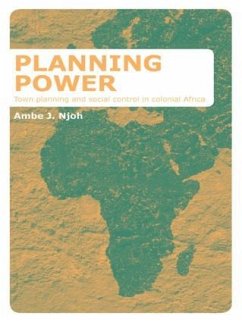
Unarchived Histories
The "mad" and the "trifling" in the colonial and postcolonial world
Herausgeber: Pandey, Gyanendra

PAYBACK Punkte
33 °P sammeln!
Traditional historians hold that there can be no history without an archive. But how is one to write a history of prejudice where the evidence that identifies or signifies its everyday forms and discriminatory behaviour is scrappy and ambiguous? The common sense of polarised race, caste, class or gender relations is articulated in rarely archived, historically unpretty and unacknowledged actions. Out of what archive is the history of these practices, which are not events, not datable or even nameable, to be written? This book investigates the extensive domain of such histories, unarchived in t...
Traditional historians hold that there can be no history without an archive. But how is one to write a history of prejudice where the evidence that identifies or signifies its everyday forms and discriminatory behaviour is scrappy and ambiguous? The common sense of polarised race, caste, class or gender relations is articulated in rarely archived, historically unpretty and unacknowledged actions. Out of what archive is the history of these practices, which are not events, not datable or even nameable, to be written? This book investigates the extensive domain of such histories, unarchived in the process of archiving those aspects of the human past and present that have been deemed significant at various times, for various reasons, by states, ruling classes and disciplinary historians.













